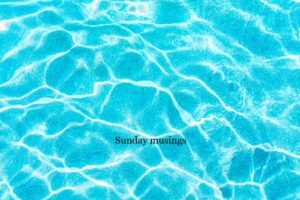The Wall by Marlen Haushofer
At a beautiful hunting lodge in the Austrian mountains a woman spends vacation with her cousin and her cousin’s husband. One evening she stays behind as they venture to a pub in town but, when she awakes the following morning, she realizes they have failed to return. As she goes to investigate she discovers an invisible wall around the perimeter of the forest surrounding the lodge. Although everything beyond the wall appears to be no different to the day before, she spots corpses in the far distance. She slowly starts to come to the conclusion that some sort of strange tragedy must have killed all living creatures outside of the wall and this force-field – an invention she believes her rich, hypochondriac cousin-in-law must have created in case of emergency – must have saved her, trapping her with in with whatever creatures happened to live in the confines of her new prison.
The novel follows this nameless woman as she deals with everyday life alone in the countryside. She is forced to be completely self-sufficient while simultaneously caring for a dog, a cow and several cats, all of which she accumulates as she explores her new home. It is a story of a woman’s struggle against the unfamiliarity of primitive living, the tremendous power in the will to survive, the impact that loneliness and grief can cause to the human psyche and the bond between man and animal. A truly ambitious piece, there is really no other novel that can be likened to The Wall.
Although impressively intricate, I’m not entirely sure I enjoyed this novel. Reading it was quite a struggle as the drudgery with the fight to survive is heavily emphasized and presented in great detail. I imagine it to be accurate in terms of realism but it is not very interesting to wade through.
It was also jarring to have only one character’s viewpoint throughout the book. While this may have been an essential component to the plot it limits the story considerably and without anyone to interact with, the main character grows increasingly irritating and dull. She manages to exist but does not achieve much beyond this, again a realistic result given the scenario but not a particularly entertaining one. The character was completely focused on the immediate present and this did not provide any warmth or emotional depth to the novel.
I found parts of the book fascinating and beautifully written as Haushofer reflects on the meaninglessness and ridiculousness of modern living as well as the frightening consequences of nature. The relationships that the woman forges with her animals was especially captivating to read and I did root for them all, but I couldn’t help but feel their survival was pointless. Whenever thinking of myself in her situation I failed to see any motives for carrying on – particularly as the way in which the animals she was trying to save died was so violent and disturbing. Why would anyone try and keep something alive when it only meant delaying inevitable suffering? Perhaps this is the biggest flaw in man: we believe we have the power and the right to play god, when we are in actual fact powerless to alter fate.
I know The Wall will continue to reenter my thoughts for a long time to come but I don’t think I could ever bring myself to read it twice, mainly as it provided so many questions but gave little or no answers. This is a fictional set-up with a realistic outcome, something that will encourage theorists but I don’t think could ever satisfy a reader. An inspiring premise that unfortunately failed to inspire.




Leave a Reply